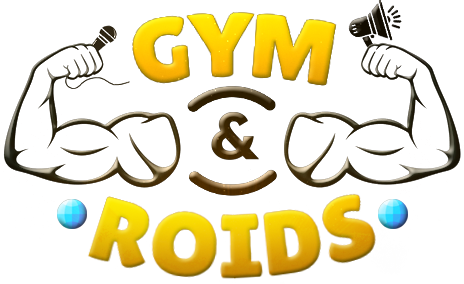Are you prepared to take the plunge and begin your language-learning adventure? Have you committed to acquiring French but find the learning process too difficult to plunge into? Do not be concerned! In the steps outlined in this thorough instruction, we shall guide you on how to learn French in one year. With commitment, consistency, and the correct tools, acquiring French quickly is feasible. Learning a new language may be challenging, but it is also pleasurable and enticing.
Our article, therefore, offers you a schedule to follow, some necessary suggestions, and a variety of resources to quicken and perfect your French. From the fundamentals of diction and syntax to the development of an extensive vocabulary and better conversational abilities, this guide shows you the jpslot learning curve. Moreover, we shall advise you on the most fascinating approach to study and discover the language so that you interact in real-world scenarios in French. As a result, regardless of whether you are a complete novice or have some amateur background in the French language, you will be equipped to acquire all the tools you need to learn French. Why Learn French?
French, like any other language, provides opportunities for openness. With around 275 million people speaking French globally, you may rest guaranteed that when learning French, you will have a great chance to communicate. French is the world’s fifth most spoken language and an official language in 29 countries, including France, Canada, Switzerland, and multiple countries in Africa.

Why Learn French?
Apart from fun and pleasure, learning French offers several benefits. Here are some of the significant advantages of learning French: Career advantages – French is an official language of international organizations such as the United Nations, European Union, and UNESCO. Learning French can help you get well-paid jobs, especially in the fields like diplomacy, tourism, international business, and in the non-government organizations. Cultural enrichment- French is the language of art, literature, fashion, and gastronomy.
Learning French can assist you to explore the rich cultural heritage and literature validate that France is revered especially poetry. Traveling opportunities, France is one of the world’s most popular tourists destination; learning French can make your traveling life much more comfortable meaning it will be easy to communicate with the locals, walk around the city’s romantic street, and taste the delicious French food. Now that you know what is in store as you learn French, I will take you through realistic goals that you can achieve in a year.
Have Realistic Goals for Learning French in One Year Learning how to communicate in a new language needs time and sacrifice. To help you succeed and achieve your goals, have targets that are practical, follow your time schedule, and learning methodology. Below is how you can meet your goals to be an expert in French within one year. Assess Your Beginning Level – First, know the steps that you have already taken before you start moving. Have you engaged in some classes before openly, or are you a beginner? This helps in knowing the pace.
Define Your Goals – write down what you want to achieve. Whether you want to become an advanced learner in speaking, listening writing, or prepare for a certain examination, ensure goals to achieve within the period to keep you on track.
Setting Realistic Goals for Learning French in One Year
Break It Down: Split your one-year goal into more detailed parts. For example, you may want to learn specific grammar topics, learn a certain number of new vocabulary words every month, or perform regular conversations with native speakers. Divide your goal into the most specific steps to make it more manageable and not to lose your motivation. Track Your Progress: Keep a record of the learning progress to stay motivated and understand how well you have developed in the target language.
Use a foreign language journal or specialized learning apps to record your vocabulary, grammar progress, and other skills. Regularly celebrate small victories and improvements to stay motivated. Be Realistic : Establish specific goals that can be achieved. You will not be able to achieve fluency within a year, but it is possible to get a solid foundation base and actually become a confident communicator. Remember that developing proficiency in a foreign language is a continuous process, and one year is just the beginning of your learning journey. Registered and planned goals will help to organize the learning process and gradually work towards the set target.
Let me continue with the study schedule and routine. Creating a Study Schedule and Routine Consistency is essential in learning a foreign language. A study schedule will help you plan your activity, have a closer connection with your target, and track your progress. Here is how your study schedule can be created: Determine your studying time. Identify when you are the most awake and careful. Do you want to wake up in the morning, find some free time during your lunch, or prefer to study before going to bed? Choose the appropriate time and try to stay consistent.

Creating a Study Schedule and Routine
-
Set study goals: Determine how many hours a day or week you will study French. Choose a period to study that you can really devote, not want to drop everything and run away. Consistency is more important than a long time in one session.
-
Make a plan: Decide and plan in advance what you will do. For example, today you will do some grammar exercises, tomorrow you will listen to a podcast, watch a movie in French, and the day after tomorrow, read an article. So that you have a balance and you can get a little bit of everything.
-
Change: Not to get bored, it is better to alternate the type of activity. It can be alternating listening, speaking, reading, and writing. In addition to being less bored, it will also help you build skills faster.
-
Use dead time: Also known as spare time. All the little minutes that you have free for something that you would have definitely thought of. You can do this during your way to work, you can listen to a French podcast, walk during a break, and memorize the words on the phone. See the videos that we talked about during your free time. Just remember that repetition is the key. Even fifteen minutes a day gives you awesome results better than long weeks. Now that you have a plan, you can understand which resources are better to train.
-
Language learning apps: Mobile applications such as Duolingo, Babbel, and Memrise offer interactive and game-like language learning applications. These apps provide short-duration lessons, quizzes, and customized course completion tracking, allowing you to learn on the move. These free French learning apps are designed to help you develop your language abilities on a range of devices. Apps make learning French extremely convenient, even during your leisure time.
-
Online language platforms: The most effective French course are available on online platforms such as FluentU, Rosetta Stone, and Lingoda, which offer French lessons with engaging videos, audio workouts, and tailored learning. Different platforms cater to various proficiency levels, so you can advance at your own speed. These tools are meant to keep you immersed in French, so the coursework is designed to be as engaging as possible.
-
Language exchange programs: Utilize language exchange app such as Tandem, HelloTalk, and ConversationExchange to contact French speakers. These websites make conversing with native individuals a breeze while simultaneously enhancing your speaking and listening abilities. These programmes give you the opportunity to practice with real individuals instantly.
-
French media and entertainment: If you want to supplement your studies, get started on French media by watching French films and shows, listening to French music and podcasts, and reading French books and newspapers. Watching French language videos can help you improve your understanding of French language use and vocabulary development.
-
Online communities and forums: Make use of online French learning forums such as r/French on Reddit and forum groups on Facebook. Forums, which often have a large number of students, offer you the chance to ask a question and obtain answers or feedback. Learn from other language learners as well and get extra resources. Make sure to choose study materials that are suitable for your learning style, interests, and goals. Follow these to get a well-rounded French learning experience. Now, armed with the best study materials, it’s time to move on to immersion methods for rapid progress.
Choosing the Right Resources for Learning French
Change Your Language Settings: Switch the language settings in your devices and applications and set French as the default language. This will familiarize you with French and expose you to common vocabulary and phrases. * Watch French Movies and TV Shows: Watch French movies and TV shows with French audio or subtitles. This will help you improve your listening skills. You will also hear different accents and learn colloquial phrases and cultural statements.
Listen to French Music and Podcasts: Listen to French radio stations, podcasts, and music. This will help you enhance your listening skills and understand various speaking styles. You will also understand French pronunciation and intonation. Read French Books and Newspapers: Start by interactive books for children and gradually read more complex books. Read French newspapers, magazines, and online articles. This will help you boost your vocabulary and reading skills.
Get Language Exchanges or Language Partners: Partner with a native French speaker to have a language exchange or a language partner. A language exchange can help you practice speaking and listening. * Stay in France: It’s been effective since you have to talk to the locals to buy something in the restaurant. Chatting the streets could improve your confidence even more. I have listed a few ways of immersing yourself. I do not mean you have to live in France. But surely you can immerse yourself in your own country. Now we are going to talk about speaking and listening.
Immersion Techniques for Accelerated Learning
Language Exchange Partners: Regularly converse with native French speakers on language exchange platforms or language partner platforms. Such practice will allow you to speak and listen in an interactive and supportive atmosphere. Another option is to engage a native French tutor for your practice needs.
Listen to French: Listen to French audio recordings, podcasts, or TV shows and repeat the pronunciation, intonation, and rhythm of words. This is a shadowing technique that helps boost pronunciation and fluency.
Record Yourself: You can record yourself communicating in French. After recording, you can listen to your voice and assess your pronunciation. You will then be able to recognize the areas that need to improve and track your learning progress. By listening to recordings of natives, you can also improve your accent.
Conversation Groups or Classes: Practice discussing and speaking French in conversation groups or classes with other learners. This will help you to be confident in speaking in a comfortable and supportive learning environment.
Listen to Authentic French: Listen to authentic French resources such as podcasts, radio broadcasts, or audio books with a focus on identifying the main ideas, key terms, and diverse accents in the language. Challenge yourself by increasing the difficulty level over time.
Watch French Videos with Subtitles: French videos, films, or similar sources can be watched with French subtitles or have native language subtitles. When your language skills improve, move on to French subtitles to enhance your listening ability and connect spoken words to their written forms.

Practicing Speaking and Listening Skills
Always remember that speaking and listening skills need practice and exposure to the language. Try to engage in regular conversations, listen to authentic materials, and try out different speaking activities. Finally, let’s address the development of reading and writing skills in French:Reading and Writing Skills in French Reading and writing skills are critical for understanding, expression, and learning new vocabulary in French.
Here’s how you can develop them effectively: Read Regularly – Make reading in French part of your daily routine. Begin with simple texts such as children’s books or graded readers and gradually progress to more challenging material. Focus on getting the main ideas and the context instead of attempting to understand every word. Expand Your Vocabulary – Highlight words that you don’t know while reading and look up their definitions. Keep a vocabulary notebook or use language-learning apps to write down new words and revise them frequently.
Practice using them in sentences to cement your understanding. Write Regularly – Write in French regularly, even if it’s just a few sentences each day. Start with simple prompts such as describing your daily routine or writing about your favourite hobbies. As you become more proficient, challenge yourself with more difficult topics or longer texts. Get Feedback – Share your new writing with a native speaker or language tutor to receive constructive criticism and have your mistakes corrected.
This will help you spot common blunders, improve your grammar and sentence construction, and boost your confidence in your writing abilities. Join Writing Workshops or Classes – Attend writing workshops or classes where you’ll receive advice and practical guidance from experienced instructors or peers. Working alongside other students will provide a supportive environment to develop your French writing skills and explore various writing styles.
If you found this article helpful, consider exploring our piece on Astronomy for another fascinating adventure in learning. Happy learning, and bonne chance!

